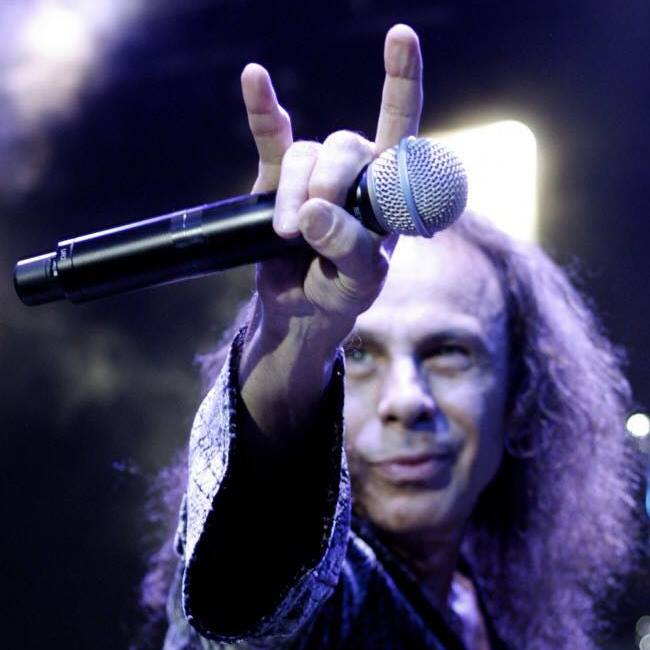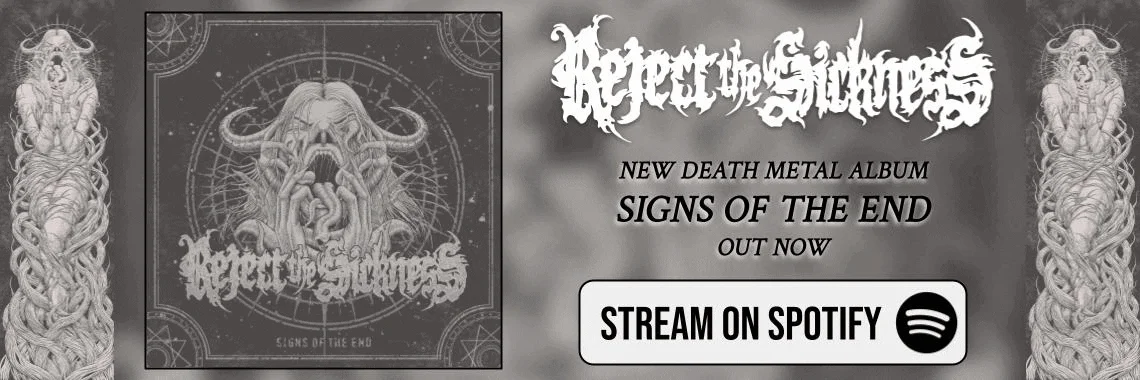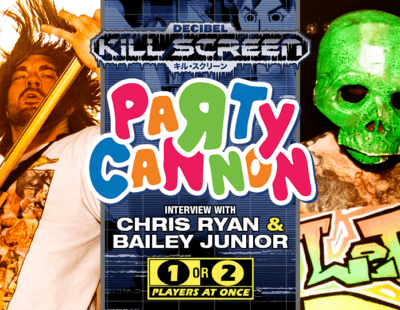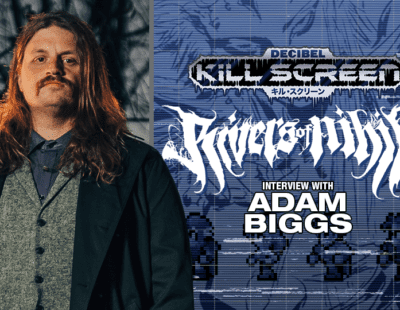
“It probably changed my attitude a little, but fame was never really my goal whichever band I was with,” Ronnie James Dio responded a decade ago when asked by Metal Hammer whether his “first real taste of stardom with Rainbow” had fundamentally changed him. “I never felt that being a celebrity was important. It’s nice to be appreciated, but being idolized is quite hard and I’ve never really sought it.”
Nearly eight years after his untimely death from stomach cancer at age 67, however, the love for this man—as well as his uncanny ability to unify metal and hard rock aficionados across subgenres and generations—only seems to grow.
It’s an interesting paradox, really: Dio always seemed came across as someone very cognizant of the fleeting nature of existence and the importance of making the most of it while you could—a down-to-earth, no bullshit attitude that endeared him to legions of fans who saw him as authentic and relatable yet also simultaneously empowered him to create such otherworldly, transcendent art.
No small feat, that.
These ongoing reverberations of influence and inspiration can be felt not only through the continued popularity of Dio’s groundbreaking work with Rainbow, Sabbath, and his ultra-successful solo act, but also in the fact that the Ronnie James Dio Stand Up and Shout Cancer Fund has to date raised over $2 million for a host of cancer charities.
On the eve of this Sunday’s fourth annual Ride for Ronnie—an all-day festival/fundraiser that includes rollicking motorcycle ride, a raffle, live auctions, food trucks, surprise celebrity guests, and performances by Dio Disciples, Steven Adler’s All Star Band, Beasto Blanco (featuring Alice Cooper’s daughter, Calico), Classless Act (featuring Slash’s son, London), and more—Decibel spoke to Dio’s widow Wendy about her late husband’s enduring legend and her own herculean efforts to honor his life and spirit.
Decibel: All these years after his passing, Ronnie remains such a vital and potent force. What do you think he’d make of all this?
Wendy: I think he’d be very humbled by it. Ronnie was a very simple man—I don’t mean simple person in mind, of course, but simple in the way he lived his life. The principle is what mattered. Yes, he was a huge star onstage, but offstage—whether he was away from the spotlight just being a homebody, or interacting with fans—he was just a normal person. He never thought of himself as above those people in the crowd—he believed everyone had something to offer .He always talked about how life had been so very good to him and he felt quite determined to pay that back—to use his time and position to help others whenever and however he could. And so he loved his fans. Every one of them was very important to him. That’s why he did what he did—for his fans.
That’s also why he also did so much charity work. Obviously, most people are aware of Hear’n Aid, but really he worked with a lot of charities—animal charities, autism charities, the Make-A-Wish Foundation, and many more.
Decibel: I imagine that is the example you strive to emulate with the Ride for Ronnie.
Wendy: Absolutely. You know, it’ll soon be eight years since we lost Ronnie, which seems like…well, I just can’t believe it most days. I don’t want to believe it. But what can I do except carry on and work to keep his music and his memory alive? To try to take this awful thing that is Ronnie’s passing and use it for something positive? So we just do everything in our power to continue his legacy and do what he would do if he were still here with us. I’m just so glad the fans are still there and still want to listen to Ronnie’s music and support us. We still have like two and a half million fans on his website. It’s unbelievable. And I can’t thank the musicians enough that give their time and their talent to these events.
I’m sure Ronnie’d be very proud of the fact that we have fourteen board members—all volunteers; we don’t have any administrative costs whatsoever—who get together once a month to try to figure out the best way to do good in his name.
Decibel: So when you first went about putting together the first Ride, why did it seem like an appropriate fundraiser/tribute?
Wendy: It started because it was Ronnie’s fifth year of passing and we thought we should do something special for that. So we did the memorial up at the Forest Lawn—which is where we did the original memorial—and there were kids coming from Sweden, from Europe, from back East, from…everywhere. We thought, “Well, maybe we should put a couple of events on either side.” Something with bowling was a natural fit because Ronnie was a bowler. He actually won a trophy from T.J. Martell years ago. So we said, “Let’s do a bowling thing.” Then somebody else said, “Let’s do a ride for Ronnie.” It was so successful that we decided to make it into two annual events. It just took off from there. The musicians have been amazing. I owe these people that always support us every year. They’re just amazing, these people.
We try to keep it so very affordable. It really is a family affair—bring your kids, bring everyone. If you want to ride, you go from Glendale Harley Davidson—which is a great sponsor of ours—to Los Encinos Park. We have a police escort with the ride, which is amazing to see like three hundred bikes coming down the street with a police escort. It’s just amazing, and it’s a lot of fun.

Decibel: It seems as if you strive to expand the boundaries of what the event can be each year.
Wendy: That’s exactly what we try to do. Not just because we want to put on bigger and better events—though we do—but also because we recognize that bigger and better events will help increase awareness and raise more money. That’s important. Obviously we gave a lot of money to T.J. Martell and to MD Anderson, where Ronnie was treated, but we’re also now giving money to Dr. Wong at UCLA who is developing a saliva test for gastric cancers, prostate cancers, pancreatic cancer, colon cancer. That will be great. We’re really exited about that. People should go read about it ondiocancerfund.org—it’s amazing. And necessary: Women, by and large, are good about going to get checked but you’ve gotta drag men there because they don’t like the way they’re tested. I think a lot more men would go and do that if it was that less invasive.
Decibel: And so what do you do? You just go to your normal doctor and say…
Wendy: “I’d like a screening.” That’s it. If you’re over 50, you should go get a colonoscopy. I try to educate people all the time on this point—early detection saves lives. Do it for yourself, do it for your mother, for your sister, for your wife, for someone you love, but just do it. If Ronnie had… Well, it’s hard to even say it. But if we had known then what we know now, I think we could have saved him. I really do. These stomach cancers and these gastric cancers, they creep up on you. You don’t think you have anything. It feels like indigestion and then you don’t know what’s going on until it’s too late. As I said, I can’t emphasize enough early detection saves lives.
Decibel: Is it gratifying for you to see younger generations discover and embrace Ronnie’s music?
Wendy: It is. In particular, there’s a lot of young musicians taking an interest in Ronnie’s work these days and I think those songs—whether it’s Dio or Rainbow or Sabbath—are helping them realize just how much is possible in heavy metal, you know? I mean, so many of the songs Ronnie sang were really beautiful and melodic as well as hard and heavy.
Decibel: Right, right. From the intro to the main riff on “Last in Line” is basically a master class in what you’re talking about.
Wendy: Exactly. That was innovative then. I think it’s innovative now. And while you can’t invent the wheel more than once, it offers an example of how you can be creative and push the boundaries and take things new and wonderful places.
<iframe width=”560″ height=”315″ src=”https://www.youtube.com/embed/9uhLDWCqSQQ” frameborder=”0″ allow=”autoplay; encrypted-media” allowfullscreen></iframe>
Decibel: You can see some of that reflected in the lineup.
Wendy: Absolutely. We’re very excited about bringing the next generation into the fold—we’ve got Slash’s son’s band playing, we’ve got Alice Cooper’s daughter Calico with her band Beasto Blanco. I think it’s great. I’m very excited to see these kids coming along and carrying on in their parents’ footsteps. I know Ronnie would love that aspect of it as well.
Decibel: You were closer to Ronnie than anyone else. If there was a single change people could make in their own lives to honor Ronnie and his memory, what do you think it would be?
Wendy: Go do something for a charity. Go do something good. Be nice to your friends. Be nice to your family. You don’t know how long you’re going to be here for.
Decibel: That’s the way he lived his life, it seems.
Wendy: Yes, he did. He absolutely did.







